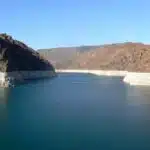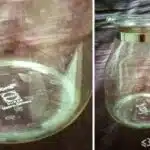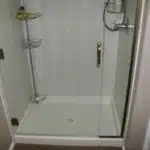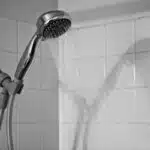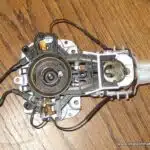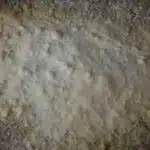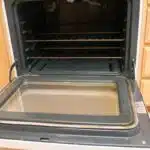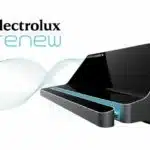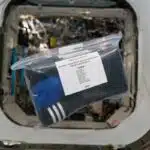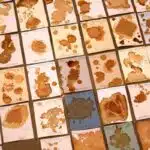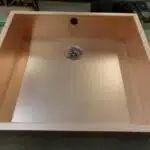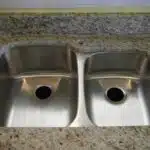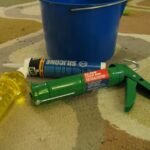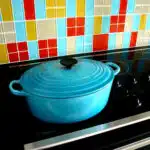Hard water deposits can be a nuisance in many households and can cause damage to plumbing, appliances, and fixtures. The high mineral content in hard water leads to the buildup of limescale on surfaces, which can be difficult to remove and unsightly. As a water treatment expert, I have seen firsthand the negative impact of hard water deposits on homes and businesses.
Removing hard water deposits requires a combination of chemical treatments and physical cleaning methods. While there are numerous commercial products available for this purpose, many contain harsh chemicals that can harm both people and the environment. In this article, we will explore natural and safe ways to clean hard water deposits using ingredients commonly found at home. By following these methods, homeowners can maintain their plumbing systems and appliances while also promoting environmental sustainability.
Understanding Hard Water And Limescale
As a water treatment expert, it is crucial to understand the mineral composition of hard water. Hard water is caused by high levels of dissolved minerals such as calcium and magnesium. These minerals are commonly found in groundwater sources and can cause problems for homeowners due to their effects on piping systems, appliances, and cleaning solutions. While not harmful to human health, hard water can cause significant damage and inconvenience in daily life.
The effects of hard water on plumbing systems are well-documented. As the minerals build up inside pipes and fixtures, they restrict the flow of water and reduce pressure over time. This can lead to clogs or even burst pipes if left untreated. Additionally, these minerals can corrode metal components in appliances like dishwashers or washing machines, leading to costly repairs or replacements. The buildup of limescale on showerheads or faucets also reduces their efficiency and lifespan.
Although hard water isn’t harmful to human health, it can have negative impacts on hygiene routines. The mineral buildup interferes with soap’s ability to lather properly, making it difficult to achieve a thorough clean when showering or doing laundry. It may also leave behind residue that makes skin feel dry or itchy after bathing. In some cases, people with sensitive skin may experience irritation due to the presence of hard water deposits. Understanding the effects of hard water is essential for homeowners looking to maintain the quality and functionality of their plumbing systems and appliances while improving overall hygiene routines.
Moving forward into our subsequent section about ‘the negative effects of hard water deposits,’ we will explore how these mineral accumulations can cause irreversible harm if left untreated for long periods of time.
The Negative Effects Of Hard Water Deposits
Although hard water is not harmful to human health, it can cause significant damage to appliances and plumbing systems. Hard water deposits can build up in pipes, faucets, and fixtures over time, leading to reduced water pressure and eventual blockages. Additionally, the minerals in hard water can corrode metal surfaces, causing rust and other forms of damage.
One of the most common effects of hard water deposits is on appliances such as dishwashers and washing machines. Over time, these minerals can accumulate in the machines’ mechanisms, reducing their ability to function properly. This can lead to costly repairs or even replacement of the appliance altogether. Similarly, hard water deposits on showerheads and faucets can reduce their efficiency and increase the likelihood of leaks or other issues.
The impact of hard water deposits on plumbing systems cannot be overstated. These deposits can accumulate inside pipes, leading to reduced water flow and increased risk of leaks or burst pipes. In extreme cases, this can result in catastrophic flooding or structural damage to a home or building. It is essential for homeowners to address hard water issues promptly to avoid these potential consequences.
Transition: Now that we understand how hard water deposits can negatively affect our homes and appliances, it’s important to discuss different methods for cleaning them. One option is chemical cleaning methods which involve using harsh chemicals to break down the mineral buildup. Another option is natural cleaning methods which use non-toxic substances like vinegar or lemon juice to dissolve the deposits without introducing harmful chemicals into the environment.
Chemical Vs. Natural Cleaning Methods
When it comes to cleaning hard water deposits, there are two main categories of cleaning methods: chemical and natural. Chemical cleaners are designed to break down minerals and other deposits through the use of harsh chemicals such as hydrochloric acid or phosphoric acid. While these cleaners can be very effective at removing hard water stains, they can also pose serious safety risks if not used properly.
One of the pros of using chemical cleaners is their effectiveness in breaking down tough mineral deposits. These cleaners are often designed specifically for hard water stains and can quickly dissolve the buildup on surfaces such as shower doors or faucets. However, there are also several cons to using chemical cleaners. For one, they can be dangerous if not handled properly and should always be used with caution. Additionally, many people may not want to use chemicals in their homes due to concerns about environmental impact.
Natural cleaning methods offer a safer alternative to chemical cleaners. There are a variety of natural solutions that can effectively remove hard water deposits without the use of harsh chemicals. Vinegar, lemon juice, and baking soda are all popular natural cleaning agents that work well for this purpose. While these methods may take longer than chemical options, they offer a safer and more environmentally friendly way to clean.
In summary, both chemical and natural cleaning methods have their pros and cons when it comes to removing hard water deposits. While chemical cleaners may be more effective at dissolving tough buildup, they also pose significant safety risks if not handled properly. Natural cleaning methods offer a safer alternative but may require more time and effort to achieve the same result. In the next section, we will explore some of the benefits of using natural cleaning methods in more detail.
The Benefits Of Using Natural Cleaning Methods
After considering the pros and cons of chemical versus natural cleaning methods, let’s now explore the benefits of using eco-friendly cleaning solutions. Natural cleaning methods do not contain harmful chemicals, making them safer for both you and the environment. With increasing awareness about climate change and sustainability, many people are looking for ways to reduce their carbon footprint. Switching to natural cleaning products is one simple way to achieve this.
In addition to being environmentally friendly, natural cleaning methods also have health benefits. Harsh chemicals in traditional cleaning agents can cause irritation or allergic reactions in some individuals. In contrast, natural cleaners are gentle on skin and respiratory systems. This makes them a great choice for families with young children or anyone with allergies or sensitivities.
Furthermore, natural cleaning solutions can be just as effective as chemical cleaners when it comes to removing hard water deposits. For instance, vinegar is a popular natural cleaner that has been used for centuries due to its acidic properties. Vinegar can dissolve calcium and magnesium buildup caused by hard water, leaving surfaces clean and shiny without damaging them. Plus, it’s affordable and readily available at most grocery stores.
With all of these benefits in mind, it’s clear that using natural cleaning methods is a wise choice for anyone who wants to protect their health and the environment while still achieving sparkling clean results. Next up, we’ll delve deeper into how vinegar can be used as an effective cleaning agent for hard water deposits.
Vinegar As A Cleaning Agent
Vinegar is a common household cleaning solution that can be used to remove hard water deposits. It is a mild acid that can dissolve mineral buildup, making it an effective DIY project for cleaning various surfaces such as sinks, showerheads, and faucets. Vinegar can also be used to clean coffee makers, dishwashers, washing machines, and other appliances that may have hard water buildup.
To use vinegar to clean hard water deposits, you will need to mix equal parts of vinegar and water in a spray bottle. Make sure the area you are cleaning is dry before spraying the mixture onto it. Allow the solution to sit on the surface for several minutes before scrubbing with a brush or sponge. Rinse the area with clean water and dry with a cloth.
Using vinegar as a cleaning agent can save you time and money from having to purchase expensive chemical cleaners. However, it’s important to note that vinegar should not be used on certain surfaces such as marble or granite countertops as it can etch or damage the surface. Always test a small inconspicuous area first before applying the solution to larger areas.
Transition: While vinegar is an effective cleaning solution for hard water deposits, there are other natural alternatives available such as lemon juice. Let’s explore how lemon juice can also be used as a cleaning agent in the subsequent section.
Lemon Juice As A Cleaning Agent
Having discussed how vinegar can be used to clean hard water deposits, it is worth exploring another natural cleaning agent that can serve the same purpose. Lemon juice, with its acidic properties, is an effective cleaner that can help remove not just hard water stains but also other stubborn stains around the house.
Beyond hard water deposits, lemon juice can help clean surfaces such as cutting boards and countertops. It is also a great cleaning agent for glass and mirrors, leaving them sparkling clean without streaks. In addition to being a natural disinfectant, lemon juice is also a deodorizer and can help eliminate unpleasant odors in your home.
Lemon juice has various applications beyond cleaning. It is an essential ingredient in many recipes and adds flavor to food and drinks. You can use lemon juice when cooking fish or chicken or add it to salad dressings for an extra zing. Lemon juice also makes for a great substitute for vinegar in baking recipes.
Transition into the subsequent section: While lemon juice has many uses around the house, there are some cleaning tasks where it may not be as effective. For these tougher cleaning jobs, baking soda may be the solution you need.
Baking Soda As A Cleaning Agent
Baking soda, also known as sodium bicarbonate, is a versatile and affordable cleaning agent that can be used to remove hard water deposits. One of the benefits of baking soda is its ability to neutralize acids and break down mineral build-up. This makes it an effective solution for cleaning surfaces affected by hard water stains.
To use baking soda as a cleaning agent, start by mixing it with water to form a paste. Apply the paste to the surface you want to clean and let it sit for a few minutes. Then, scrub the area with a damp sponge or cloth until the stains are gone. For tough stains, add vinegar or lemon juice to the paste for added cleaning power.
There are many baking soda cleaning hacks that can help you tackle hard water deposits in your home. For example, you can use baking soda and vinegar to clean your showerhead or soak your faucets in a mixture of baking soda and warm water to remove mineral buildup. Another popular method is using baking soda and dish soap as an all-purpose cleaner for surfaces affected by hard water stains. With these simple hacks, you can easily keep your home clean and free from unsightly hard water deposits.
Transition: While baking soda is an effective cleaning agent for removing hard water deposits, another common household item that can be used for this purpose is salt. In the next section, we will explore how salt works as a natural cleaning agent and how you can use it in your own home.
Salt As A Cleaning Agent
Using salt for cleaning is an effective method to remove hard water deposits from various surfaces. The benefits of salt cleaning over chemical cleaners are numerous. Salt is a natural and non-toxic substance that does not harm the environment, making it a safer alternative to chemical-based cleaners.
One of the main advantages of using salt for cleaning is its abrasive properties. Salt can easily remove mineral buildup on surfaces such as sinks, faucets, and showerheads. It’s also effective in removing stains caused by hard water deposits on glass and metal surfaces.
Moreover, salt is cost-effective compared to commercial cleaners. You can purchase a large quantity of salt at an affordable price, and it can last for a long time. Additionally, you do not need to use much salt to achieve the desired results; just a small amount mixed with warm water will suffice.
Transitioning into the subsequent section about ‘hydrogen peroxide as a cleaning agent,’ another natural and non-toxic cleaner that works well in removing hard water deposits is hydrogen peroxide. It’s an excellent alternative if you’re looking for something stronger than salt but still gentle on the environment. With its powerful oxidizing properties, hydrogen peroxide can easily break down mineral buildup on various surfaces without harming them.
Hydrogen Peroxide As A Cleaning Agent
Hydrogen peroxide is a versatile cleaning agent that can be used for a variety of household cleaning tasks. Its disinfecting properties make it an effective tool for removing hard water deposits, as it breaks down the calcium and magnesium ions that cause the build-up. The use of hydrogen peroxide is beneficial in that it is a non-toxic, chemical-free cleaner, and has the added advantage of being biodegradable. As such, it is an effective, environmentally friendly way to clean hard water deposits.
Uses Of Hydrogen Peroxide
Hydrogen peroxide is a versatile chemical that can be used for various cleaning purposes. It is an excellent alternative to harsh chemicals, making it a popular choice among homeowners and professionals alike. The effectiveness of hydrogen peroxide in removing hard water deposits cannot be overstated, as it is a potent oxidizer that breaks down mineral buildup quickly.
One of the main uses of hydrogen peroxide in water treatment is as a disinfectant. In small concentrations, it can effectively kill bacteria and viruses present in the water. This makes it ideal for use in swimming pools, hot tubs, and other recreational water facilities. Additionally, hydrogen peroxide can also be used to remove iron and manganese from well water, which often cause staining and odors.
Another benefit of using hydrogen peroxide as a cleaning agent is its eco-friendliness. Unlike other harsh chemicals commonly used for cleaning hard water deposits, hydrogen peroxide breaks down into oxygen and water when exposed to light or heat. It does not leave behind any harmful residues or byproducts that may harm the environment or human health. Plus, it is readily available at most grocery stores and pharmacies at an affordable price.
In conclusion, hydrogen peroxide offers several advantages over traditional cleaning agents when it comes to removing hard water deposits. Its effectiveness, versatility, safety profile, and affordability make it an excellent alternative for homeowners looking to maintain clean and safe water systems without relying on harsh chemicals. By incorporating hydrogen peroxide into regular cleaning routines, individuals can promote better health outcomes while protecting the environment from further damage caused by chemical pollutants.
Benefits Of Hydrogen Peroxide
Hydrogen peroxide is a versatile cleaning agent that offers numerous benefits over traditional chemicals. One of the main advantages of using hydrogen peroxide is its ability to remove coffee stains effectively. Coffee stains can be stubborn and difficult to remove, but hydrogen peroxide can break down the compounds that cause discoloration quickly. This makes it an ideal choice for homeowners who wish to maintain clean and tidy kitchen surfaces.
Another benefit of using hydrogen peroxide as a cleaning agent is its ability to remove mineral buildup on showerheads. Over time, mineral deposits build upon showerheads, causing them to become clogged and less efficient. Using hydrogen peroxide can dissolve these minerals, making showerheads function efficiently again while eliminating the need for harsher chemical agents.
Furthermore, hydrogen peroxide is an eco-friendly alternative compared to traditional cleaning agents because it breaks down into oxygen and water when exposed to heat or light. It does not leave behind any toxic residues that may harm human health or the environment. Additionally, it is readily available at most grocery stores and pharmacies at an affordable price point. By incorporating hydrogen peroxide into regular cleaning routines, individuals can promote better health outcomes while protecting the environment from further damage caused by chemical pollutants.
Combining Cleaning Agents For Maximum Effectiveness
As we continue our journey to clean hard water deposits, it is essential to discuss how combining cleaning agents can maximize effectiveness. Imagine a flowing river, where different tributaries converge to form a powerful stream. Similarly, when you mix cleaners, you create a synergistic effect that increases the potency of the solution. For instance, combining vinegar and baking soda creates a reaction that dissolves calcium and magnesium deposits. However, not all cleaners are compatible. Mixing bleach with ammonia creates toxic fumes that can cause respiratory distress.
Before mixing any cleaners, it is crucial to understand safety precautions to avoid accidents or injuries. Always read labels and instructions before using any cleaning product. Wear protective gear such as gloves, goggles, and masks if necessary. Never combine cleaners containing different chemicals as they may react explosively or release toxic gases. When in doubt, stick to one cleaner at a time.
In summary, mixing cleaners can be an effective way to tackle hard water stains; however, it must be done with caution and care. Always follow safety precautions and never mix incompatible products. In the next section, we will discuss the tools and equipment you will need for this task.
Tools And Equipment You Will Need
To effectively clean hard water deposits, you will need to have the right tools and equipment at your disposal. Some of these tools include:
- A scrub brush or scouring pad to help remove buildup from surfaces.
- White vinegar or lime juice to dissolve mineral deposits.
- Baking soda or borax powder for added cleaning power.
- Rubber gloves to protect your hands from harsh chemicals.
When it comes to cleaning solutions, there are several DIY techniques that you can use. For example, you can mix equal parts white vinegar and water in a spray bottle and apply it to the affected area. Let the solution sit for a few minutes before scrubbing with a brush or scouring pad. Another option is to create a paste using baking soda or borax powder and water, then apply it to the stains and let it sit for 15-20 minutes before rinsing off.
By using these tools and cleaning solutions, you can effectively remove hard water deposits from various surfaces in your home. However, it is important to read product labels carefully and follow all safety instructions when working with harsh chemicals.
As you prepare for the next step-by-step guide on removing hard water deposits, ensure that you have gathered all of the necessary tools and ingredients beforehand. With the right knowledge and preparation, you can tackle this task with confidence and achieve great results!
Step-By-Step Guide To Removing Hard Water Deposits
Hard water deposits are a common problem that many households face due to high mineral content in the water supply. In fact, according to a study conducted by the Water Quality Association, over 85% of American homes have hard water. These deposits can cause damage to appliances and fixtures, as well as leave unsightly stains on surfaces such as sinks and showerheads.
Fortunately, there are various DIY cleaning solutions and effective cleaning techniques that can help remove hard water deposits. One popular method is using white vinegar, which contains acetic acid that breaks down mineral buildup. Simply soak a cloth in vinegar and wrap it around the affected area for several hours before wiping clean with water. Another option is using baking soda mixed with water to create a paste that can be applied to surfaces and scrubbed away with a brush.
To further assist in the removal of hard water deposits, consider using specialized cleaning products such as lime and rust removers or descaling solutions. These products contain stronger acids that target stubborn buildup on surfaces like faucets, shower doors, and toilets. However, it’s important to follow the instructions carefully and wear protective gear such as gloves and goggles when handling these chemicals.
In order to prevent future buildup of hard water deposits, it’s essential to address the root cause of the problem – high mineral content in the water supply. Installing a water softener system can effectively reduce mineral levels in your home’s water supply, leading to less frequent occurrence of hard water deposits. Additionally, regularly cleaning surfaces prone to buildup can also help prevent further damage from occurring.
Preventing Future Buildup Of Hard Water Deposits
- Regular maintenance is an important step in preventing future hard water deposits from occurring.
- Soft water solutions such as water softening can help remove existing hard water deposits and prevent future buildup.
- Water filtration systems can be used to reduce the amount of minerals present in the water and thus reduce the risk of hard water deposits.
- In areas where hard water is a problem, regular maintenance such as descaling should be conducted to reduce the buildup of hard water deposits.
- Installing a water filtration system is another effective way to reduce hard water deposits in the pipes and fixtures.
- Soft water solutions can also be used to reduce the concentration of minerals in the water and thus reduce the risk of hard water deposits.
Regular Maintenance
As a water treatment expert, it is important to emphasize the significance of prevention in dealing with hard water deposits. Regular maintenance is one of the most effective ways to prevent future buildup of these unwanted deposits. By setting a regular schedule for cleaning and maintaining your appliances and plumbing fixtures, you can avoid the hassle and cost of dealing with severe hard water problems.
Identifying the source of hard water deposits is also crucial to maintaining your plumbing system. The most common sources include ground water, which contains minerals such as calcium and magnesium that contribute to buildups, and insufficiently treated municipal water supplies. Knowing where these deposits come from can help you take preventative measures that are tailored to your specific situation.
Regular maintenance not only prevents future buildup but also prolongs the lifespan of your appliances. When hard water deposits accumulate in pipes and fixtures, they can cause damage over time by reducing the flow rate and causing blockages. By being proactive about maintaining your plumbing system, you can ensure its longevity while enjoying clean and safe water for yourself and those around you.
Soft Water Solutions
As a water treatment expert, preventing future buildup of hard water deposits is crucial. Regular maintenance and identifying the source of these deposits are effective ways to avoid severe hard water problems. However, another solution that can be considered is using a water softener.
Water softeners work by removing minerals such as calcium and magnesium from the water, preventing them from accumulating in pipes and fixtures. This not only prevents future buildup but also prolongs the lifespan of your plumbing system and appliances. Water softener installation may seem like an additional expense, but the benefits of using a water softener outweigh the cost in the long run.
Using a water softener can also improve the quality of your home’s water supply. Softened water can make your skin feel smoother and hair shinier, while also reducing soap scum on surfaces. It can also help reduce energy costs by allowing appliances to run more efficiently and last longer. Overall, incorporating a water softener into your regular maintenance routine is a wise investment for both your plumbing system’s health and the quality of life in your home.
Water Filtration Systems
As a water treatment expert, preventing future buildup of hard water deposits is an essential aspect of maintaining the health of your plumbing system. While regular maintenance and identifying the source of deposits are effective solutions, using a water softener can also be a practical option. However, if you’re looking for a more comprehensive solution that not only removes minerals but other contaminants as well, then installing a water filtration system may be the answer.
Water filtration systems work differently from water softeners. They use various technologies to remove impurities such as sediment, chlorine, and bacteria from the water. Reverse osmosis systems, for instance, filter out up to 99% of dissolved solids in the water, making it safe and pure for consumption. By removing these contaminants, you can prevent future buildup of hard water deposits while also improving the quality of your home’s drinking and cooking water.
Investing in a water filtration system is beneficial in many ways. Apart from reducing hard water deposits and ensuring safe drinking water, it can also help extend the lifespan of your appliances and plumbing fixtures by preventing corrosion caused by mineral buildup. Additionally, filtered water is gentler on skin and hair compared to unfiltered tap water. Ultimately, incorporating a reliable and efficient filtration system into your regular maintenance routine will undoubtedly serve your household’s needs better in terms of health benefits and long-term cost savings.
Importance Of Regular Maintenance
Regular maintenance of your water treatment system is crucial to ensuring it continues to function at its optimal level. Neglecting proper upkeep can lead to hard water deposits, which can have a negative impact on the quality of your water and the longevity of your appliances. It is important to be aware of the benefits of regular maintenance for both DIY cleaning tips and professional cleaning services.
Benefits of Professional Cleaning:
- Thorough removal of hard water deposits
- Improved water quality and taste
- Increased lifespan of appliances and plumbing systems
- Reduced risk of costly repairs or replacements
DIY Cleaning Tips:
- Regularly clean faucets, showerheads, and other fixtures with vinegar or lemon juice
- Use a water softener system or filter to prevent buildup
- Install a water conditioner to reduce mineral content in your water supply
- Use specialized cleaning products specifically designed for removing hard water stains.
By implementing regular maintenance practices such as these, you can ensure that your home’s water supply remains clean and healthy. In the next section, we will explore natural and safe cleaning methods that can be used in conjunction with these maintenance practices for a healthier home and environment.
Conclusion: Natural And Safe Cleaning Methods For A Healthier Home And Environment
According to a study conducted by the Environmental Working Group, the average household contains around 62 toxic chemicals. These chemicals can have adverse effects on our health and the environment. That is why it is essential to switch to natural cleaning products and DIY cleaning methods.
Natural cleaning products are made from plant-based ingredients that are safe for both humans and the environment. They do not contain harmful chemicals like ammonia, bleach, or phthalates, which can cause respiratory problems, skin irritation, and other health issues. Some of the best natural cleaning products include vinegar, baking soda, lemon juice, and essential oils.
DIY cleaning methods are another excellent way to keep your home clean without using harsh chemicals. For example, you can make an all-purpose cleaner by mixing equal parts water and vinegar in a spray bottle. You can also use baking soda to scrub away hard water deposits in your shower or sink. Not only are these methods safer for your health and the environment, but they are also more affordable than commercial cleaning products.
In summary, natural cleaning products and DIY cleaning methods are not only safer for your health and the environment but also more economical. By making small changes in your cleaning routine, you can create a healthier home for yourself and your family while reducing your ecological footprint. So next time you reach for that bottle of chemical-laden cleaner, think twice and try out some natural alternatives instead!
Conclusion
Hard water deposits are a common problem in homes and buildings across the world. The buildup of limescale can be unsightly and difficult to remove, not to mention damaging to pipes and appliances. Chemical cleaning methods have been traditionally used to combat this issue, but there are natural alternatives that are much safer for both humans and the environment.
Natural cleaning agents such as vinegar have proven effective in removing hard water deposits without the need for harsh chemicals. When combined with proper maintenance techniques, these natural methods can prevent future buildup of limescale altogether. It is important for homeowners and businesses alike to prioritize regular cleaning and maintenance in order to ensure a healthy living environment.
In conclusion, hard water deposits are a nuisance that require attention in order to maintain a healthy home or business environment. Natural cleaning methods offer safe solutions that can be just as effective as chemical alternatives. Proper maintenance techniques are crucial in preventing further buildup of limescale. As water treatment experts, it is our responsibility to educate others on the importance of natural cleaning methods and regular maintenance practices for a healthier home and environment.
Image Credits
- “Running in water can be hard to keep track of the finish line.” by kennethkonica (featured)



